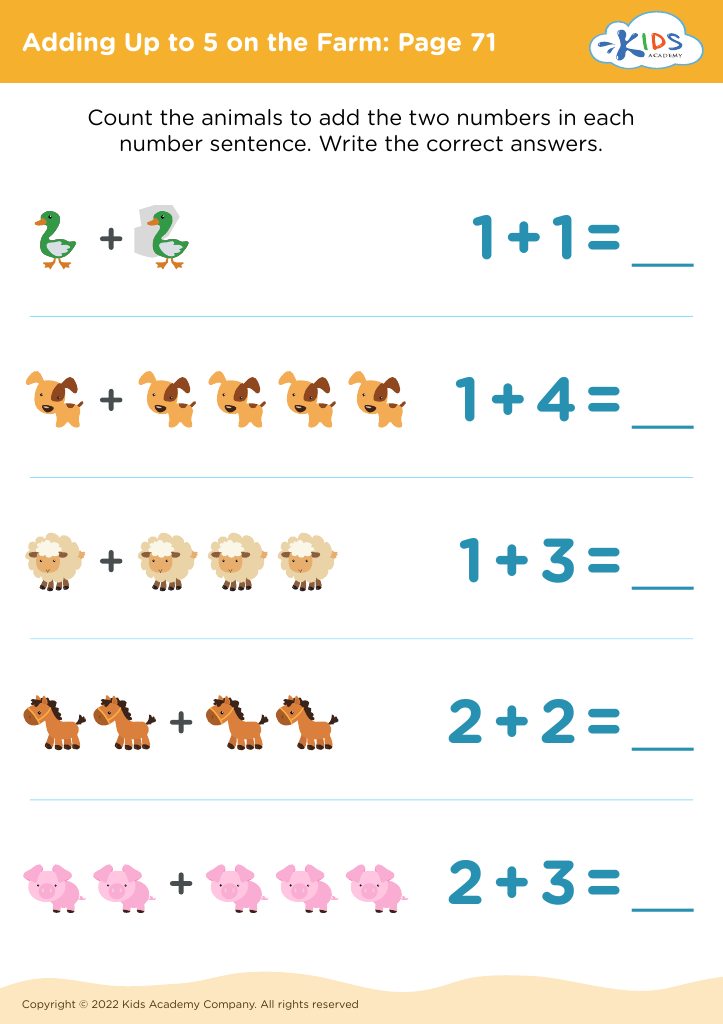Observational skills Math Worksheets for Ages 4-8
11 filtered results
-
From - To
Enhance your child's analytical abilities with our "Observational Skills Math Worksheets for Ages 4-8". Tailored specifically for young learners, these interactive worksheets focus on developing keen observational skills essential for mathematical success. Through engaging activities like pattern recognition, sorting, and matching, children will learn to notice details and differences that sharpen their cognitive abilities. Crafted by educational experts, each worksheet offers a fun and effective way for kids to build a solid foundation in math while honing critical thinking. Perfect for both classroom use and home learning, these worksheets are an invaluable resource for fostering early math skills.
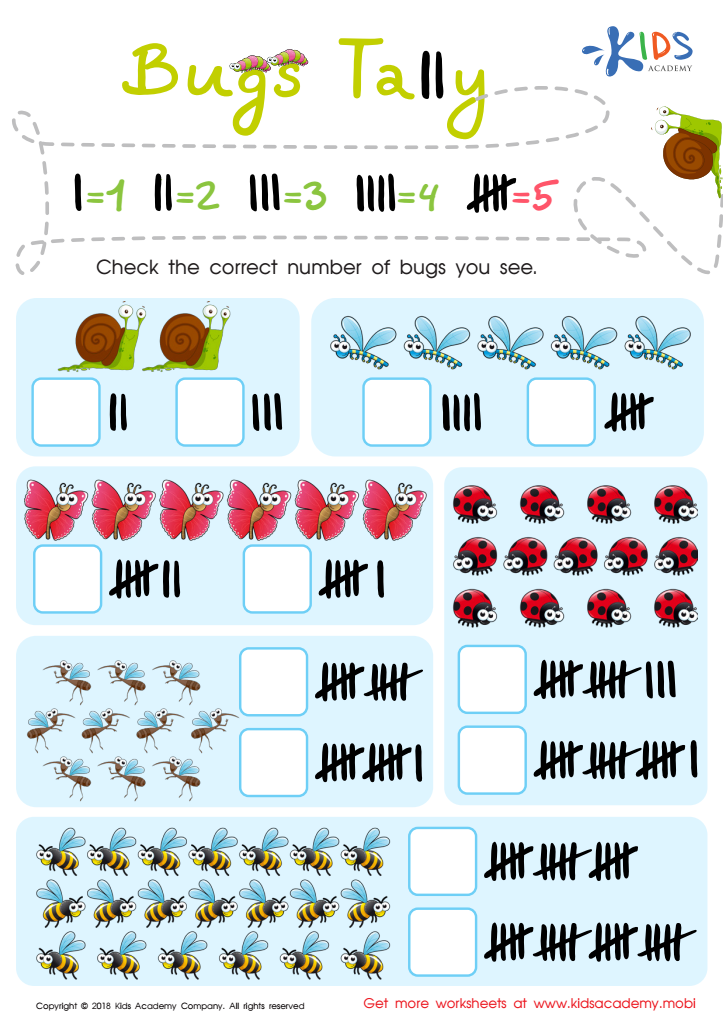

Bugs Tally Worksheet
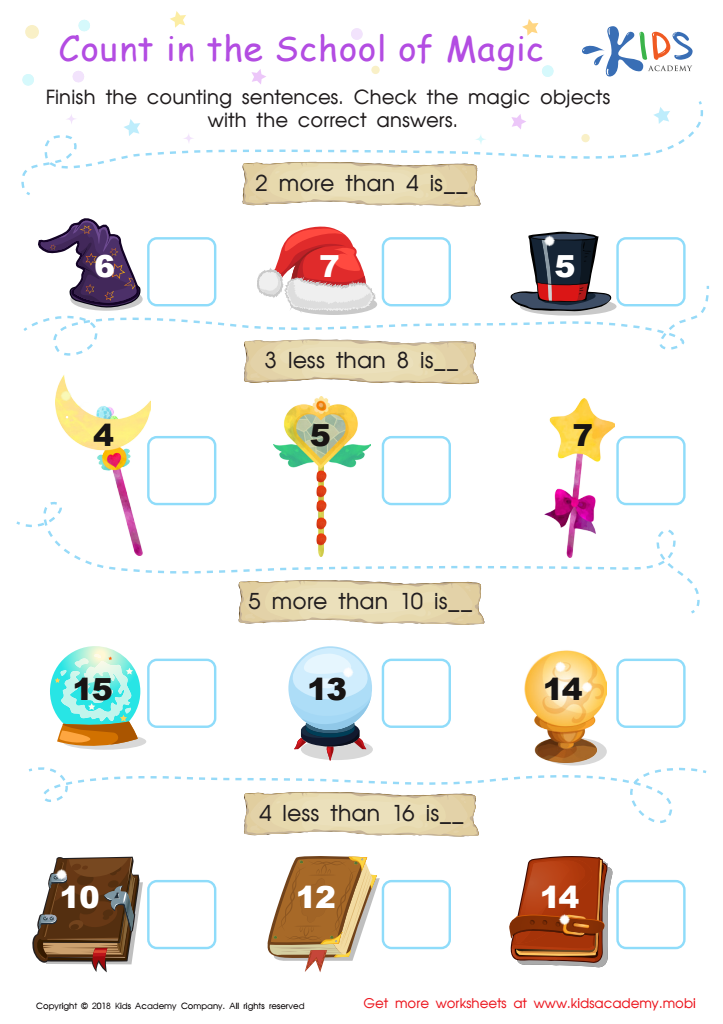

Count in the School of Magic Worksheet


Party Arrays Worksheet
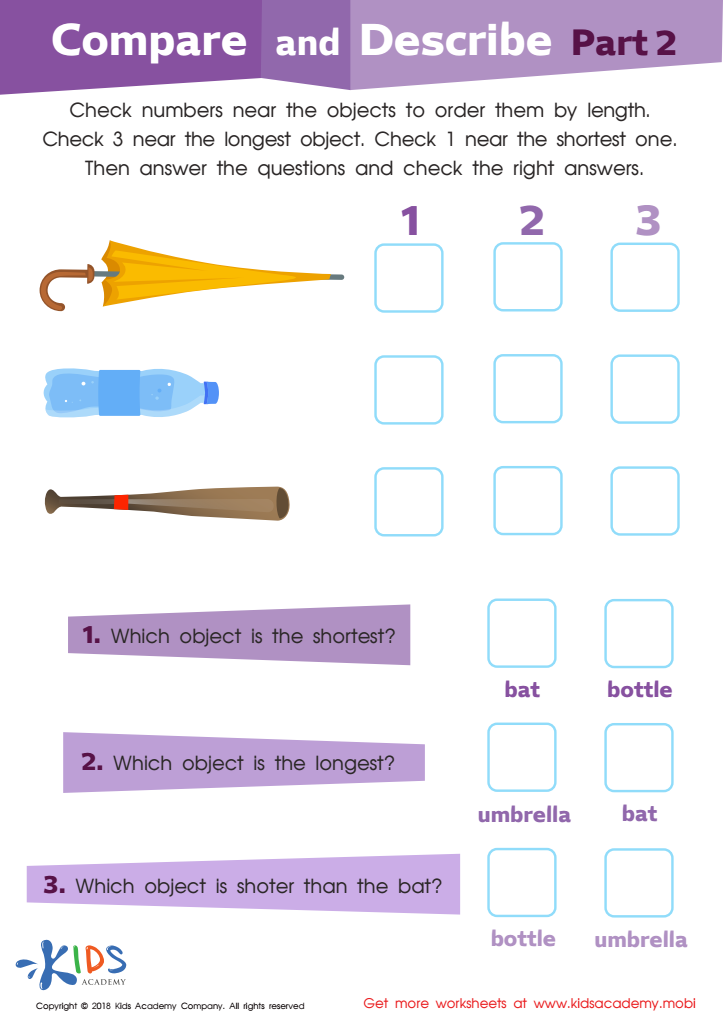

Compare and Describe: Part 2 Worksheet
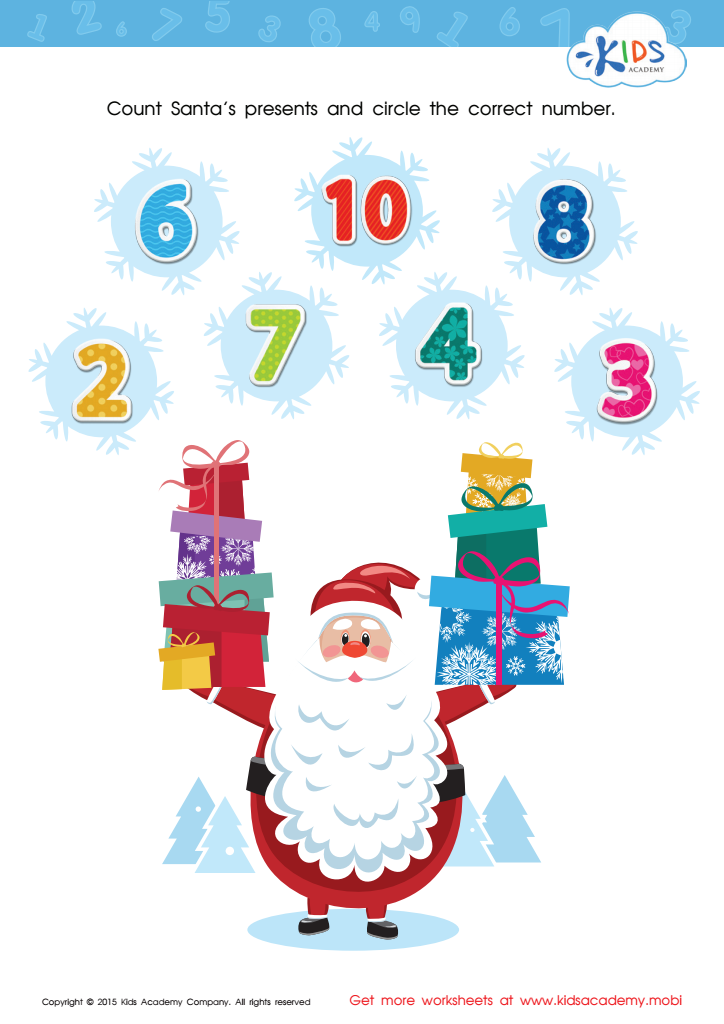

Count Santa's Presents Worksheet
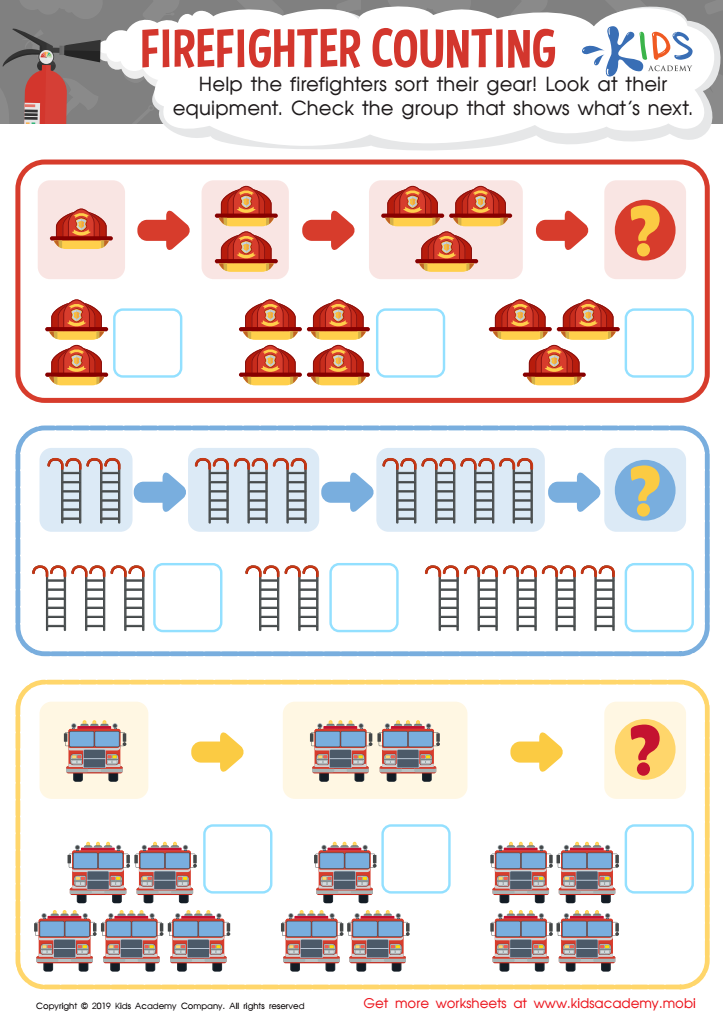

Firefighter Counting Worksheet
Observational skills are the foundation of early math learning, fundamental for children aged 4-8 to build robust mathematical understanding. At this critical developmental stage, youngsters naturally explore their world through observing patterns, shapes, and quantities. Parents and teachers play a pivotal role in nurturing this innate curiosity to help children develop essential skills.
Encouraging observational skills allows children to recognize relationships and patterns, crucial for grasping basic math concepts. For instance, distinguishing between different shapes, sizes, colors, and positions helps them understand geometry and spatial reasoning. Noticing how objects compare in weight and size sets the stage for understanding measurements and properties.
Incorporating observational skills into daily activities fuels critical thinking and problem-solving abilities. Simple tasks like counting objects, identifying patterns in nature, sorting toys, and observing landmarks nurture an inquisitive mindset. Encouraging children to vocalize what they see solidifies vocabulary and communication skills tied to math concepts.
Fostering these skills at an early age sets a solid groundwork for more complex mathematical operations. As children grow and progress, the ability to observe and analyze empowers their capacity to tackle higher-level math with confidence. By valuing observational skills, parents and teachers ensure they’re crafting a conducive environment for powerful, sustained mathematical growth.
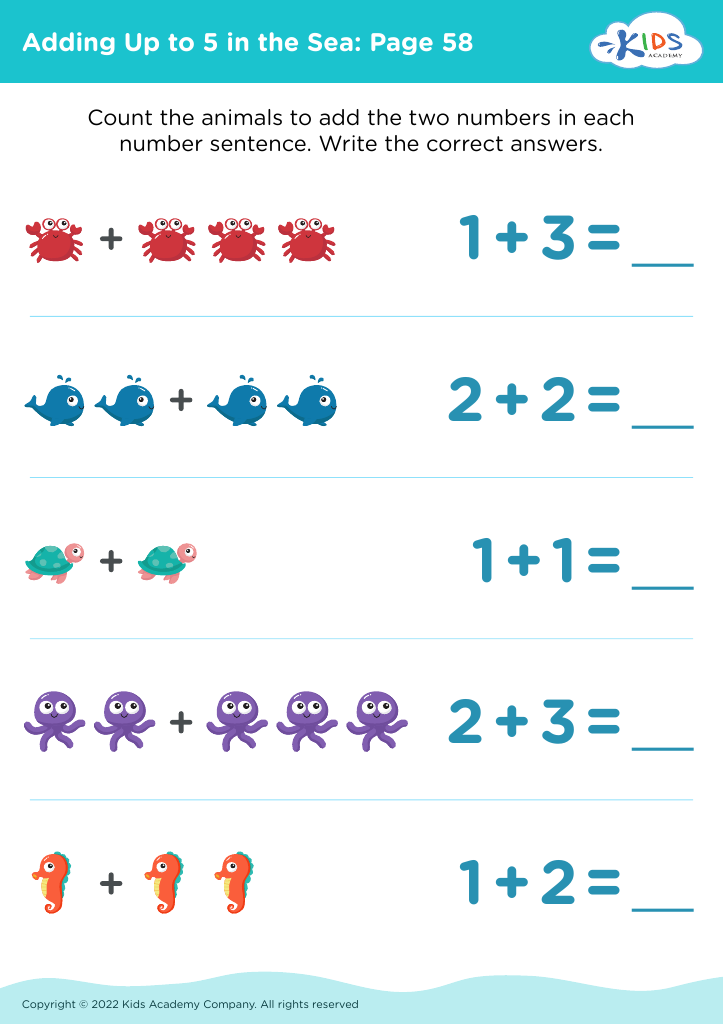

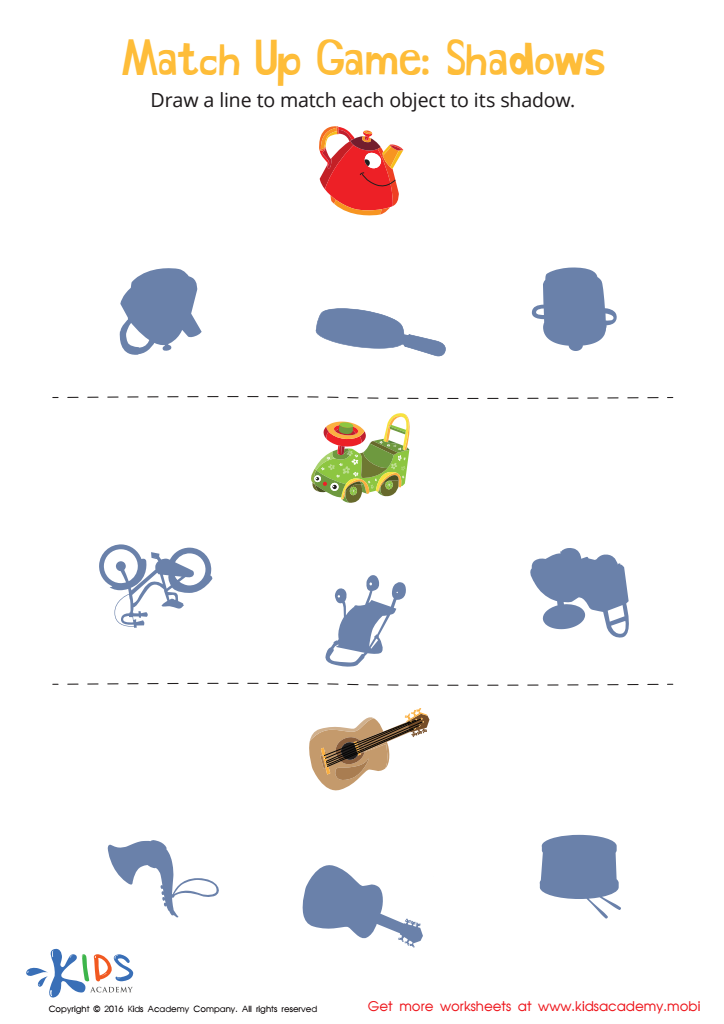
 Assign to My Students
Assign to My Students
